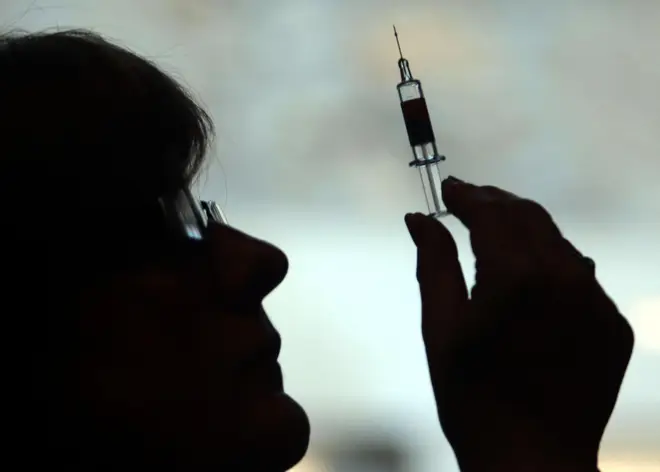
Ali Miraj 12pm - 3pm
24 July 2020, 11:47

The Government is aiming to double its winter flu vaccination programme in England to 30 million people, with free jabs for those aged 50 and over and 11-year-olds.
Last year, around 15 million people received a jab against seasonal flu but ministers hope this will rise to 30 million this winter.
Experts are concerned about the impact of a double whammy of Covid-19 cases and seasonal flu potentially overwhelming the NHS.
Read more: Boris Johnson brands anti-vaxxers 'nuts' amid second spike warning
There are also worries that people could suffer both seasonal flu and Covid-19 at the same time.
Prime Minister Boris Johnson said he wants "everybody to get a flu jab".

Why we are more concerned about coronavirus than regular seasonal flu
He said: "We want everybody to get a flu jab in the run-up to this winter and that's why we're rolling out the biggest ever programme of flu immunisation.
"And we're aiming first of all for schoolchildren up to Year 7, for pregnant women, for people over 65, for people who are shielded, but then we will be extending it to people who are 50 to 65.
"Now the reason for doing this is to protect the NHS in the winter months because obviously we have still got Covid, we have still got the threat of a second spike on Covid and it's vital therefore to keep that pressure off the NHS by everybody getting a flu jab and I really hope everybody will."
At the moment, the free NHS flu programme is for people aged 65 and over, pregnant women, people with certain conditions such as kidney disease, asthma or heart disease and carers or those in care homes.
Frontline health and social care workers are also eligible to receive the flu vaccine.
The flu jab is also free for children over six months with a long-term health condition, those aged two and three and those in primary school.
Listen & subscribe: Global Player | Apple Podcasts | Google Podcasts | Spotify
This programme will now be extended to include children who are aged 11 by the end of August this year (the first year of secondary school) and anyone aged 50 and over, who will be vaccinated later in the year.
Anyone living in a household with somebody on the NHS shielded patient list for Covid-19 will also be eligible for a free jab.
Experts hope GP surgeries will focus on high-risk groups before those aged over 50 in the fit and healthy range.
Not all GP surgeries will have enough fridge space to accept all the doses of the vaccine that they will need.
However, the aim is that all those eligible will have had their vaccine by Christmas.
The Government hopes NHS and social care workers will see it as their professional responsibility to get the flu jab, but have not ruled out making it mandatory in future years.
During the winter 2019/2020 flu season, 72.4% of people aged 65 and over got their jab in England, as did 44.9% of those in high-risk groups aged six months to 64.
Overall, 74.3% of frontline health workers had their jab.
The uptake figure is known to be much lower for social care staff.
Health Secretary Matt Hancock said: "It's mission critical that we pull out all the stops to get ready for winter, and the Prime Minister has already announced £3 billion to protect the NHS.
"We are now taking another important step to help protect the wider public by giving the flu vaccination to more people than ever before.
"This will be the biggest flu vaccination programme in history, and will help protect our NHS as we head into winter.
"If you are eligible for a free vaccine, whether it's for the first time or because you usually receive one, then I would urge you to get it, not just to protect yourself, but to protect the NHS and your loved ones, from flu."
England's chief medical officer, Professor Chris Whitty, said: "Flu can have serious consequences and vulnerable people can die of it.
"Having the vaccine protects you, and helps reduce transmission to others.
"This winter more than ever, with Covid-19 still circulating, we need to help reduce all avoidable risks.
"Vaccinating more people will help reduce flu transmission and stop people becoming ill."